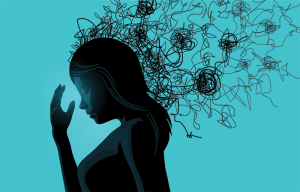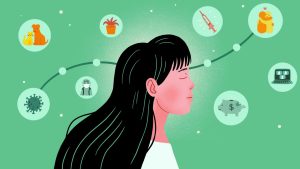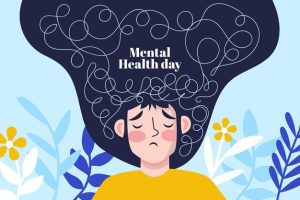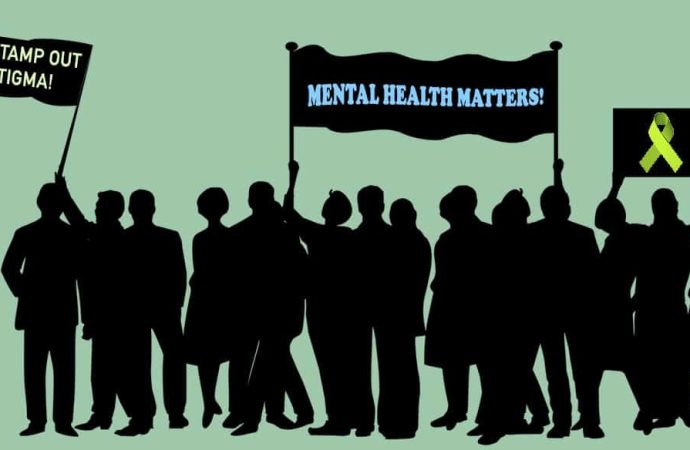Mental health is a key part of overall well-being. Yet many people still face challenges when talking about it. In 2025, there is a strong push to make mental health discussions open and honest. This article explains what mental health means, why it is important, and how we can break the stigma. We will also
Mental health is a key part of overall well-being. Yet many people still face challenges when talking about it. In 2025, there is a strong push to make mental health discussions open and honest. This article explains what mental health means, why it is important, and how we can break the stigma. We will also share simple tips to improve mental wellness. Our goal is to help you understand mental health in a clear and simple way.
What Is This: What is Mental Health?
It covers our emotions, behavior, and ability to handle stress. Good mental health allows us to work well, relate to others, and enjoy life. When mental health is not in a good state, it can affect every part of our lives.
The Importance of Understanding Mental Health

Image by: Yandex.com
Understanding mental health can lead to better life choices. When you know more about it, you can take steps to care for your mind and body. People with good mental health are better at dealing with stress and building strong relationships. They can work better and feel happier. Here are some reasons why understanding mental health is important:
- Improved Well-Being: When you care for your mental health, you can lead a more balanced and happy life.
- Better Relationships: Good mental health helps you communicate and connect with others.
- Increased Productivity: Being mentally strong can boost your focus and work performance.
- Healthier Coping Skills: Understanding mental health helps you deal with challenges and recover from setbacks.
Why is There a Stigma Around Mental Health?

Image by: Yandex.com
The stigma around mental health comes from old beliefs and misunderstandings. Many people think that mental health problems are a sign of weakness. They may see someone who struggles as “different” or “flawed.” This view is not true. Mental health issues can affect anyone, regardless of age, gender, or background.
How a Better Understanding of Mental Health Helps You
Understanding mental health helps you build a support system. It can improve your life in many ways:
- Self-Awareness: Knowing how your mind works helps you understand your emotions and behavior.
- Early Help: Recognizing signs of stress or depression can lead you to seek help before problems grow.
- Better Relationships: When you understand your own mental health, you can communicate better with loved ones.
- Informed Decisions: With knowledge about mental health, you can make choices that improve your overall well-being.
Daily Habits to Improve Mental Health

Image by: Yandex.com
Here are some simple daily habits that can improve your mental health and help break the stigma:
1. Practice Mindfulness
Mindfulness means being aware of the present moment. Spend a few minutes each day to focus on your breathing. This practice reduces stress and brings a sense of calm.
4. Eat a Balanced Diet
A balanced diet that includes fruits, vegetables, whole grains, and lean proteins can improve your mood. Avoid too much sugar and processed foods that can lead to mood swings.
6. Get Enough Sleep
Sleep is essential for mental health. A regular sleep schedule can improve your energy and concentration during the day. A well-rested mind is better able to deal with stress.
7. Limit Negative Media
Too much time on social media or negative news can harm your mood. Set limits on screen time and choose positive content to help lift your spirits.
8. Practice Gratitude
Writing a gratitude journal can help shift your focus to the positive things in your life.
The Role of Education and Awareness

Image by: Yandex.com
Education is a powerful tool in breaking the stigma around mental health. When you learn about mental health, you become better equipped to help yourself and others. Awareness can change how society views mental health. The more people talk about mental well-being, the less shame there is. This encourages individuals to seek help and lead healthier lives.
The Social Impact of Breaking the Stigma
Breaking the stigma around mental health has broad social benefits. When people feel safe to talk about their struggles, they are more likely to get help. This openness can lead to better support systems and stronger communities. Healthy minds contribute to healthy societies. Social acceptance of mental health issues creates a culture of care and empathy.
A Comparison Table: Traditional Views vs. New Perspectives on Mental Health
| Aspect | Traditional Views | New Perspectives |
|---|---|---|
| Openness | Often kept hidden, seen as weakness | Open discussion, seen as natural and healthy |
| Support | Limited, stigma prevents seeking help | Wide support through community and digital tools |
| Education | Few reliable sources and misinformation | Access to expert advice and research-based information |
| Treatment | Primarily medication and in-person therapy | Combination of therapy, digital apps, and self-care |
| Social Impact | Isolation and shame | Community support and shared experiences |
This table shows the differences between old and new views on mental health. Modern perspectives encourage openness, support, and informed treatment. Breaking the stigma improves mental health for everyone.
Expert Tips to Further Break the Stigma
Here are some easy tips to help break the stigma around mental health:
- Talk openly about your feelings with trusted friends and family.
- Educate yourself using reliable sources, such as health websites and expert advice.
- Join or create support groups to share your experiences.
- Use social media to spread positive messages about mental health.
- Encourage others to seek help if they need it, and remind them that it is okay to be vulnerable.
- Support mental health initiatives and donate to organizations that work in this field.
The Future of Mental Health Awareness in 2025
In 2025, mental health awareness will continue to grow. New research and technology will provide better ways to support mental well-being. Digital tools like apps and online therapy make it easier for people to get the help they need. As society becomes more educated on these issues, the stigma will fade away.
The future looks promising. We can expect more initiatives that encourage open discussion and provide accessible mental health care. This will lead to healthier communities and better overall well-being. With ongoing efforts, the support for mental health will only increase.
Conclusion
In 2025, understanding mental health and breaking the stigma are more important than ever. By opening up conversations, educating ourselves, and using digital tools for support, we can create a better world for mental well-being. When mental health is openly discussed, it leads to improved care and stronger communities. Embracing this change benefits us all, both personally and socially. Let us work together to build a future where mental health is valued, supported, and normalized.
















